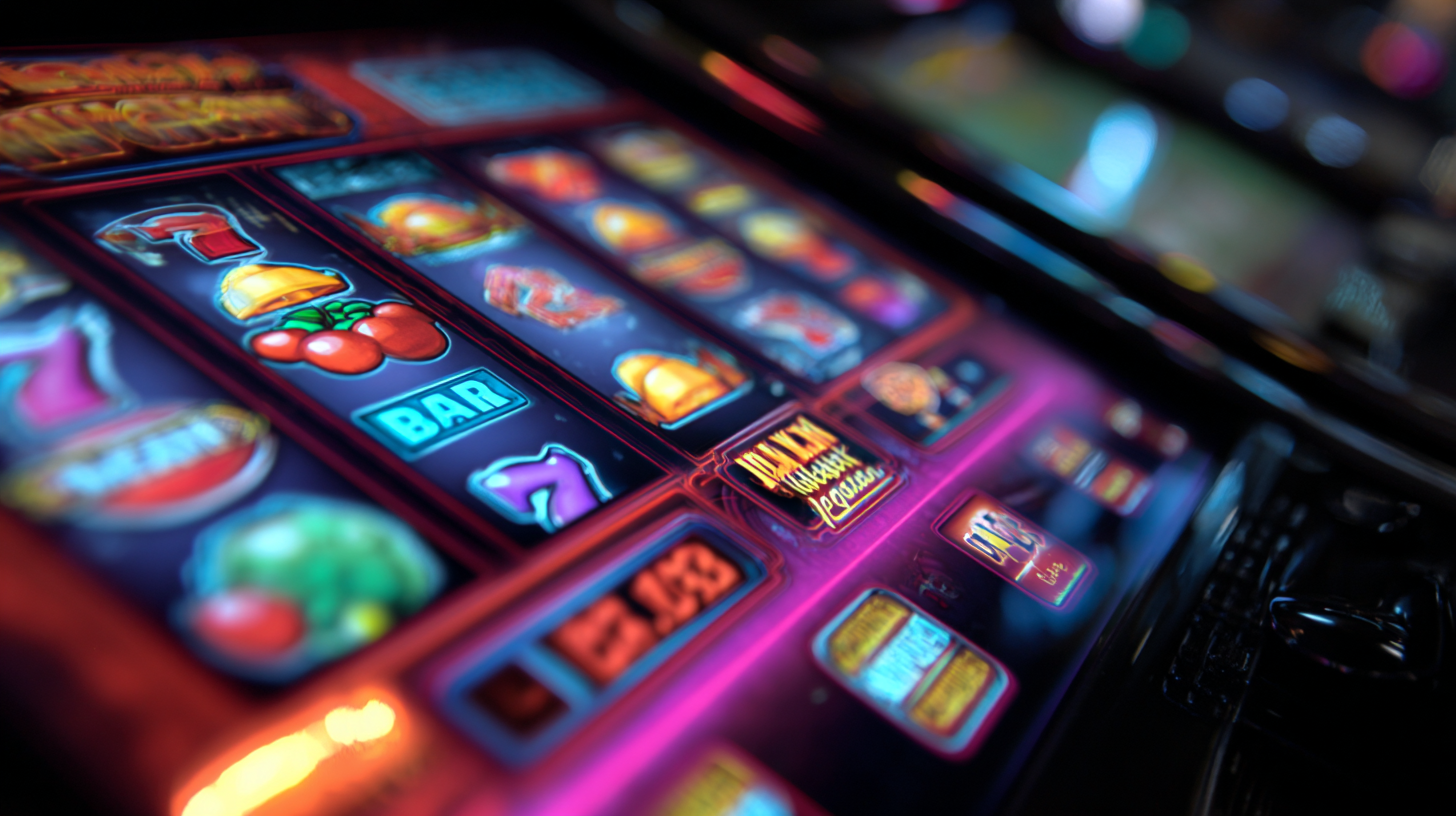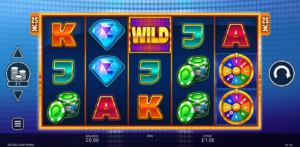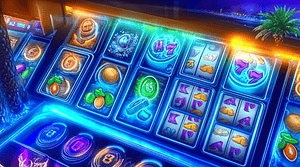
The Truth About RTP: What Most Players Don’t Know and How It Impacts Your Payouts
When you sit down to play your favorite slot game at an online casino, you probably aren’t thinking much about the RTP—the Return to Player percentage. You might be focused on the thrill of spinning the reels, hoping for that big win. But what if we told you that the RTP of the game you’re playing could be different depending on which casino you’re at? And that the casino, not the game developer, has the power to adjust the RTP settings? This is something that many players overlook, but it can have a significant impact on how much you can expect to win—or lose—over time.
For most players, RTP is a term that seems a bit technical. But understanding it is critical if you want to maximize your chances of winning at online casinos. RTP is essentially a percentage that represents the amount of money a game will pay back to players over an extended period. So, if a slot game has an RTP of 96%, it means that, over a long series of spins, the game is designed to return 96% of the money wagered on it. But here’s the thing—this percentage is not always fixed. It’s not a set-in-stone value determined by the game’s creator. Instead, the online casino often has the flexibility to adjust the RTP, making it either higher or lower depending on their preferences.
Most players don’t realize that casinos have the ability to tweak the RTP of games. This means that the same slot game from the same developer could have a different RTP depending on the platform. The developer might have a default RTP (the “base” percentage), but the casino can choose to offer a version with a lower RTP to improve their own profit margins. This is one of the hidden secrets of online gaming that many players don’t know about.
Why Does the Casino Adjust RTP?
The reason casinos adjust RTP settings is simple: profitability. By lowering the RTP slightly, the casino can retain a higher percentage of the bets placed by players. While this doesn’t change the fundamental mechanics of the game, it does affect the odds and payouts in the long run. Lower RTP means less money is returned to the player, while higher RTP means the casino pays out more.
Online casinos often use different RTP versions of games for different markets. For example, one version of a game might be set at an RTP of 94% for players in one country, while a higher 96% version could be available in a more competitive market, where players have higher expectations. The reason for these variations boils down to market demands and regulatory requirements. In some regions, such as regulated markets like the UK or New Jersey, casinos are usually required to disclose the RTP for each game. In less regulated markets, there may be little to no oversight, allowing casinos to operate with hidden or altered RTPs that aren’t always disclosed to players.
How Does This Impact You as a Player?
The difference in RTP may seem like a minor detail, but it can make a huge difference to your long-term playing experience. If you’re playing a game with a lower RTP, you could end up losing more money than you would on a version with a higher RTP. Over a series of spins, this difference adds up, and a small change in RTP can translate into hundreds or even thousands of dollars over time, depending on how often you play.
Most players tend to overlook this aspect because, at first glance, the games all look the same. They feature similar graphics, sound effects, and gameplay mechanics. But underneath the surface, the RTP can vary widely, and it directly impacts your chances of hitting a win.
For example, let’s say you’re playing a popular slot like Starburst by NetEnt. On one casino, the RTP could be set to 96%, while on another, it might be reduced to 94%. The game might look identical, but the casino with the lower RTP is essentially keeping a bigger portion of the money you wager. Over time, this will reduce the amount of money you can expect to win from that game.
How to Check RTP and Make Better Choices
So, how can you make sure you’re playing on a platform with the best possible RTP? The first step is to check the RTP information for the game you’re playing. Many modern online slots have an info or paytable section where the RTP is clearly listed. This is the easiest way to verify if you’re getting the best return. However, it’s not always straightforward, as some casinos may not display RTP information upfront.
If you’re serious about optimizing your chances of winning, you’ll need to do some research before you play. Start by looking up the game’s RTP in reputable online casino reviews, or use trusted casino comparison websites like E-Vegas.com. These sites often provide detailed breakdowns of game mechanics, including RTP values for specific casinos, and can help you avoid platforms that offer lower RTP versions of games.
Another strategy is to play at regulated casinos in regions with strict gaming regulations, like New Jersey, the UK, or certain parts of Europe. These casinos are usually required to offer transparent RTP settings for all their games, so you can trust that you’re playing on a fair platform. In jurisdictions with looser regulations, RTP values may be hidden, and the casino could be offering lower RTP settings without your knowledge.
The Long-Term Importance of RTP
It’s easy to dismiss RTP as a minor detail, but in the long run, it matters a lot. The odds of winning big on a game are largely shaped by the RTP, and understanding how it works can significantly impact your bankroll management strategy. Games with higher RTPs are generally better for players, as they are designed to return a larger portion of your wagers over time. This means that, on average, you’ll win more and lose less on higher RTP games compared to lower RTP versions.
When you play on a casino that offers games with high RTP, you’re essentially giving yourself the best possible chance to win, even though individual spins are still random. Understanding this dynamic can help you make smarter decisions about where to play and which games to try.
If you’re serious about online gaming, it pays to do your homework and understand the nuances of RTP before you start spinning the reels. You wouldn’t buy a car without doing research on its performance, and you shouldn’t jump into a slot game without knowing how it pays back to players. By checking RTP before you play, you can increase your chances of winning in the long term and ensure that your gaming experience is as enjoyable and profitable as possible.
Why It Pays to Read the Articles at E-Vegas.com
At E-Vegas.com, we aim to give players like you the knowledge and tools needed to make informed decisions when choosing where and what to play. Understanding the importance of RTP—and how casinos can adjust it—is just one of the many aspects of online gaming we cover. By reading our articles, you’ll gain insights that can directly impact your gaming experience and potentially increase your chances of winning. We provide up-to-date information on the latest trends, casino promotions, and strategies, so you can be sure you’re playing on platforms that give you the best possible returns.
Understanding RTP and how casinos can adjust it is something that most players overlook, but it’s crucial to your success as a gambler. The casino has the ability to tweak the RTP, which means the same game could offer different payouts on different platforms. To ensure you’re getting the best possible experience and maximizing your chances of winning, always check the RTP before you play, especially if you’re playing on a platform that doesn’t clearly disclose this information.
In the fast-paced world of online gambling, knowledge is power. By staying informed and playing on trusted, regulated casinos that offer fair RTP settings, you’ll be well on your way to improving your long-term gaming strategy. And remember, it pays to read the articles at E-Vegas.com—where we keep you updated on everything you need to know about online casinos, so you can play smarter and win more.
Where to Next:

What Are Live Slots and How Do They Work? Live Slot Games Explained
Play Live Slots What Are Live Slots and How Do They Work? Live Slot Games Explained Live slots and live casino games are designed to blend the convenience of online play with the atmosphere and authenticity of a real casino floor. Instead of relying entirely on automated visuals and silent gameplay, live games introduce real

The Ultimate Guide to the 5 Spin Rule in Slot Machines: Strategy, Tips, and FAQs
Play Slots The Ultimate Guide to the 5 Spin Rule in Slot Machines: Strategy, Tips, and FAQs The “5 Spin Rule” in slot machines is a strategy that has captured the attention of both casual players and more disciplined gamblers. At its simplest, the rule is straightforward: if you do not achieve a meaningful win

Which Online Casinos Have the Largest Selection of Slot Games?
Zero Wagering Vegas Themed Megaways Free Spins High RTP% Jackpots Which Online Casinos Have the Largest Selection of Slot Games? The online gambling landscape in the UK has grown rapidly over the past decade, and one category stands out above all others: slot games. For players seeking variety, excitement, and the thrill of hitting a

9K Kong in Vegas: An Epic Slot Adventure in the Heart of Sin City | E-Vegas.com Reviews Vegas Slots Online
9K Kong in Vegas: An Epic Slot Adventure in the Heart of Sin City | E-Vegas.com Reviews Vegas Slots Online Prepare to experience a wild adventure that combines the thrills of Vegas with the massive scale of the jungle in 9K Kong in Vegas, brought to you by Relax Gaming. If you like this try

Vegas Cash Spins Slot Review: A Thrilling Ride through the Neon Lights of Sin City
Vegas Cash Spins Slot Review: A Thrilling Ride through the Neon Lights of Sin City If you’ve ever dreamed of the dazzling lights, the thrill of spinning reels, and the electrifying atmosphere of Las Vegas, then Vegas Cash Spins by Inspired Entertainment delivers all that and more. Launched in early 2021, this game brings classic

How to Get Free Spins: The Ultimate Comprehensive Players Guide to Free Spin Bonuses
How to Get Free Spins: The Ultimate Comprehensive Players Guide to Free Spin Bonuses Free spins are one of the most enticing bonuses offered by online casinos. Players love them because they provide the opportunity to win without risking any of their own money. Whether you’re new to online casinos or an experienced player, knowing

Beyond the Reels: Exploring the World’s Most Popular Played & Iconic Slot Game Themes
Beyond the Reels: Exploring the World’s Most Popular Played & Iconic Slot Game Themes When you sit down in front of a slot machine, whether at a vibrant, neon-lit casino or on the convenience of your mobile device, you’re not just spinning the reels in pursuit of a win. You’re entering a unique world that

The Goonies Megaways Explained: RTP, Volatility, Bonus Modes, Cash Collect, and Megaways Features in One Detailed Review
The Goonies Megaways Explained: RTP, Volatility, Bonus Modes, Cash Collect, and Megaways Features in One Detailed Review A Deep Dive Into one of White Hat Studios’ Blockbuster Megaways Adventures. The Megaways era of online slots has delivered some of the most exciting, unpredictable, and feature-rich games in the industry. From genre-defining classics like Bonanza Megaways to branded
FAQ: Why RTP in Online Slots Matters To You
1. What is RTP (Return to Player)?
RTP, or Return to Player, is the percentage of all the wagered money that a slot game will return to players over an extended period. For example, if a slot has an RTP of 96%, it means that for every $100 wagered, the game is designed to pay back $96 on average over time, with the remaining 4% being the house edge.
2. Does the RTP always stay the same for a game?
No, the RTP of a game can vary depending on the online casino. While the game developer may set a default RTP for their game, the casino has the ability to adjust this RTP, either higher or lower, based on their preferences and business strategy. As a result, the same slot game can have different RTPs across various casinos.
3. Why do casinos change the RTP of games?
Casinos adjust the RTP to optimize their profit margins. By lowering the RTP, they retain a larger portion of the money wagered by players. Although this doesn’t change the fundamental gameplay mechanics, it impacts the odds and long-term payouts. Some casinos may lower the RTP to make up for operational costs or to remain competitive with other casinos.
4. How can I check the RTP of a slot game before I play?
The RTP is often listed in the game’s information or paytable section, which you can access when playing the game. However, some casinos may not always display the RTP information. In such cases, you can check trusted casino review websites, such as E-Vegas.com, which often include RTP values for specific casinos and games. Another option is to look for independent reviews and forums where players share their experiences and RTP data.
5. Does the RTP impact my chances of winning in a single spin?
No, the RTP does not affect your chances of winning on a single spin. Each spin is independent, and slots are games of chance. However, over a long period, the RTP helps determine how much of your wager will be returned to you. Games with higher RTPs typically return a larger portion of your money over many spins, while those with lower RTPs will return less on average.
6. Can I find higher RTP slots in certain casinos?
Yes, you can find casinos that offer higher RTP versions of slot games, especially in regions with strict gaming regulations. In regulated markets like New Jersey, the UK, and parts of Europe, casinos are required to disclose the RTP of their games, ensuring transparency. If you want the best RTP, it’s worth doing some research and playing at licensed and regulated casinos that prioritize fairness.
7. Why is RTP important for my long-term gaming strategy?
Understanding RTP is crucial because it impacts your potential return on investment over time. By playing games with higher RTPs, you increase your chances of getting back a larger portion of your wagers. This can help you manage your bankroll better and make your gaming experience more profitable in the long run.
8. How can RTP affect my bankroll?
RTP directly affects your expected losses or gains over an extended period. If you play a game with a low RTP (e.g., 94%), you may lose money faster than if you were playing a game with a higher RTP (e.g., 96%). While individual spins are random, the RTP represents the game’s expected payout over a long series of spins, so choosing higher RTP games helps preserve your bankroll and extend your playtime.
9. Does RTP change if I play at a mobile casino or desktop version?
The RTP of a game does not change depending on whether you play on mobile or desktop platforms. The RTP is a setting that is tied to the casino’s game configuration. If the RTP is altered by the casino, it will be the same across all platforms where the game is available.
10. Are there any specific regions where RTP is more transparent?
Yes, regulated markets like New Jersey, the UK, and parts of Europe have strict regulations that require casinos to disclose the RTP of their games. In these regions, players can be confident that the RTP information provided is accurate and that the casino operates under fair conditions. In less regulated markets, RTP information may be more difficult to find, and some casinos may not disclose it at all.
11. How do online casinos adjust RTP?
Online casinos adjust RTP by using different versions of the same slot game. The game developer may offer a base RTP, but the casino can choose to lower it slightly to increase their house edge. This flexibility allows casinos to optimize profitability, especially in markets where they face high competition or have specific revenue goals.
12. Can RTP be manipulated by players?
No, RTP cannot be manipulated by players. It is set by the casino and/or game developer. Players cannot influence the RTP through betting strategies or patterns. However, by choosing casinos that offer higher RTP games and researching which games have the best payouts, you can optimize your chances of receiving a better return over time.
13. What is the difference between RTP and Volatility?
RTP refers to the percentage of money returned to players over time, while volatility (or variance) refers to the frequency and size of payouts. A high volatility game may pay out less frequently but offers the chance for larger payouts, while a low volatility game may pay out more often but in smaller amounts. Both RTP and volatility are important factors to consider when choosing a slot game.
14. Should I always choose the game with the highest RTP?
While it may seem logical to choose the game with the highest RTP, it’s important to consider other factors, such as volatility, bonus features, and personal preferences. High RTP games are generally better for long-term play, but if you’re looking for larger jackpots or more frequent smaller wins, a lower RTP game with higher volatility might be more suited to your goals.
15. Can I expect the same RTP in a land-based casino?
In a land-based casino, the RTP is typically fixed and regulated by state laws. In contrast, online casinos have more flexibility to adjust RTP settings. However, some land-based casinos may also offer slot games with variable RTPs depending on the specific game or region.
16. Why is it important to play on a trusted, regulated casino?
Playing on a trusted, regulated casino ensures that the RTP values are accurate and that the casino is operating fairly. In regulated markets, casinos must adhere to strict standards and are often required to disclose RTP information. This transparency helps protect players and ensures a fair gaming experience.
17. How does RTP relate to the house edge?
The house edge is the opposite of RTP. If a game has an RTP of 96%, the house edge is 4%. This means that, on average, the casino will retain 4% of all wagers placed on the game. RTP represents the portion of the wagers that the game is designed to pay back to players over time.
18. Can RTP vary within the same game?
Yes, RTP can vary for the same game depending on the casino’s settings. While the game developer sets a default RTP, the casino has the option to offer different RTP versions of the game. This is why it’s important to check the RTP before playing, as the same game may pay back more or less depending on the casino you choose.
19. Does RTP matter if I’m playing for fun?
If you’re playing slots for fun and entertainment, RTP may not be as important, as it mainly affects long-term returns. However, if you’re looking to maximize your chances of winning over time, understanding RTP can help you make smarter decisions and ensure a better overall experience.
20. Is RTP important for all types of online games?
RTP is most important for slot games, as they rely on chance and have set payout percentages. For table games like blackjack or roulette, RTP is also relevant, but the strategies you use can influence your outcomes more significantly.

